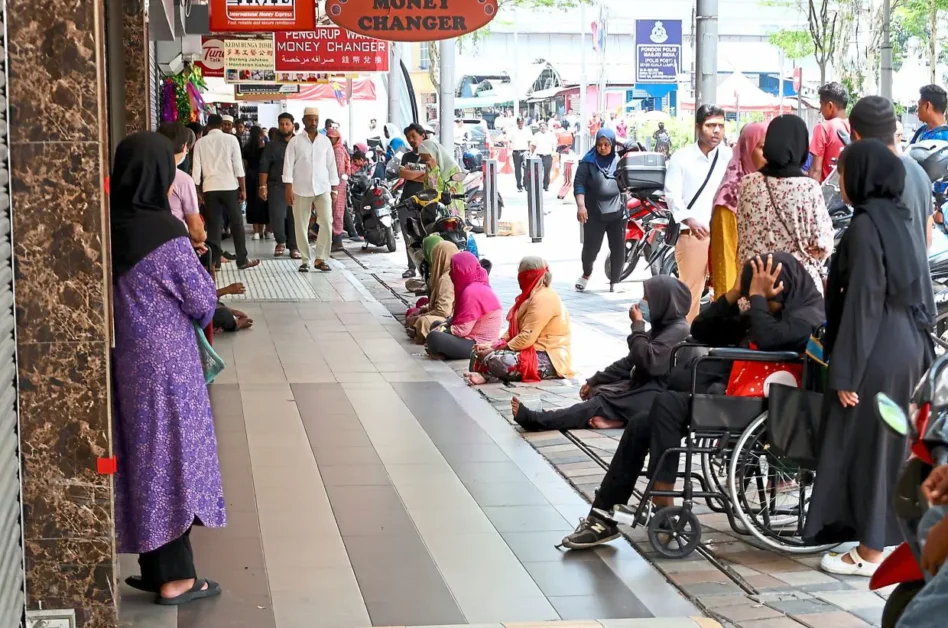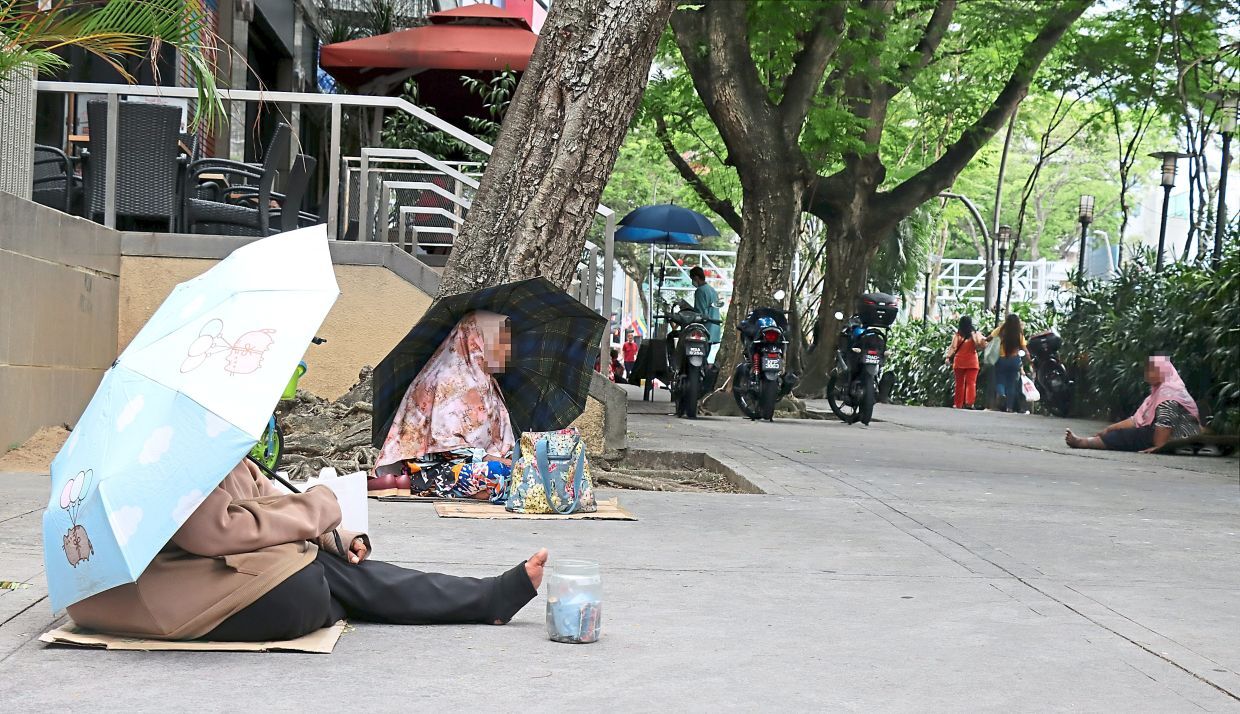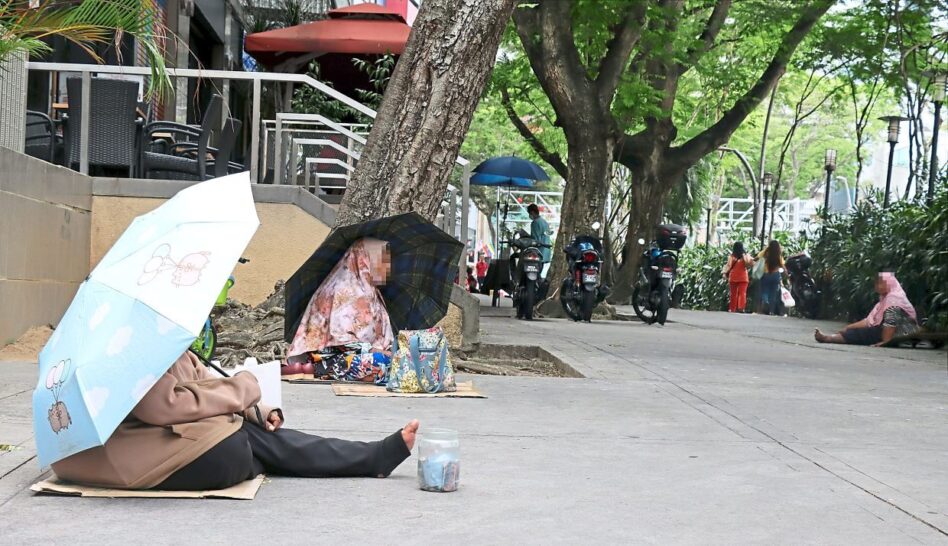MANY people assume that prostitution is the oldest profession, literally believing what they have read. However, professions are highly skilled occupations that require prolonged training and recognised qualifications, but not those offering sexual services.
For those caught short of money, I imagine they would start by begging rather than offering sexual services. In any case, both ventures were not the oldest professions.
The earliest human activities were hunting and gathering, later growing plants and breeding animals for a steady supply of food.
I grew up in Pandamaran in the 1950s and 1960s. Then, elderly Chinese men individually went to each house to beg.
Like most other poor villagers, we had no money to spare. So I would scoop half a condensed milk-size can of raw rice and pour it into the beggar’s large metal mug.
Over the past 56 years, I have been living in Kuala Lumpur, but no beggars showed up at the house door to beg. Instead, I was regularly approached by beggars while dining at eateries, and their favourite haunts are traditional coffee shops that allow them to enter and exit unhindered.

There were intervals when the number of beggars on the streets appeared to be less. Either they were not able to operate freely or there was no need for them to beg for food, content with what was provided for them through charity, by individuals or organisations, or government bodies.
Legislations may also have some effects. An old law that predates independence can be found in the Minor Offences Act 1955 under Section 27(c) which states that individuals found begging in a public place when they have the ability to earn a living can be fined or imprisoned.
Also, the Destitute Persons Act 1977 defines begging and outlines the care and rehabilitation of destitute persons and allows for the taking into custody of individuals who are begging and refusing to be taken into a welfare home.
And Section 32 of the Child Act 2001 makes it illegal for anyone to cause or allow a child to be on a street, premises, or place for the purpose of begging or receiving alms and is applicable even if there is a pretence of singing, playing or offering something for sale.
But these laws did not deter beggars who were either not aware or chose to ignore them. They could be elderly or disabled Malaysians counting on the public’s sympathies, or foreigners who regard Malaysia as a happy hunting ground, compared to stiffer competitions in home countries.
There are still shaven-headed males, mostly foreigners, wearing yellow ropes masquerading as Buddhist monks asking for cash or selling lucky charms.
Many people were taken in as they appeared gentle in demeanour by smiling, walking and speaking softly. I was approached by one last Sunday.
In recent years, begging activities were like a business venture, with syndicates roping in the elderly, sick, disabled or anyone suffering severe injury on one of the limbs. These beggars would be provided with transport to targeted areas and given food and shelter.
Many foreign beggars in Malaysia were found to be Muslim Rohingyas, who originated from Bangladesh, and large numbers were settled just across the border in Myanmar’s coast and also in Pakistan, which was formerly known as West Pakistan, with Bangladesh as East Pakistan.

In 1982, Myanmar’s nationality law denied them citizenship, leading to widespread discrimination and persecution.
In 2017, a violent military crackdown resulted in a mass exodus of over 740,000 Rohingyas to Bangladesh, and later many fled to Malaysia, India, Thailand and Indonesia.
As of November 2023, there were 62,382 Rohingya refugees or 58% of the total refugee population in Malaysia registered with UNHCR. Other refugees and asylum seekers from Myanmar, such as the Chin and other ethnic groups, are also substantial, totalling 30%.
Last Thursday, a 40-year-old disabled beggar was stabbed to death by a 28-year-old beggar in front of a bank in Shah Alam after the deceased refused to move away from his usual begging turf when demanded by the younger man who possessed a disabled person card.
Begging at some choice spots could be lucrative and stakes must be high for physical altercation to occur, and in this case leading to death.
It is no longer just a nuisance and the public need to be aware that some of the beggars could be armed and dangerous. How times have changed! – April 28, 2025
YS Chan is master trainer for Mesra Malaysia and Travel and Tours Enhancement Course and an Asean Tourism Master Trainer. He is also a tourism and transport business consultant.
The views expressed are solely of the author and do not necessarily reflect those of Focus Malaysia.
Main image: The Star










